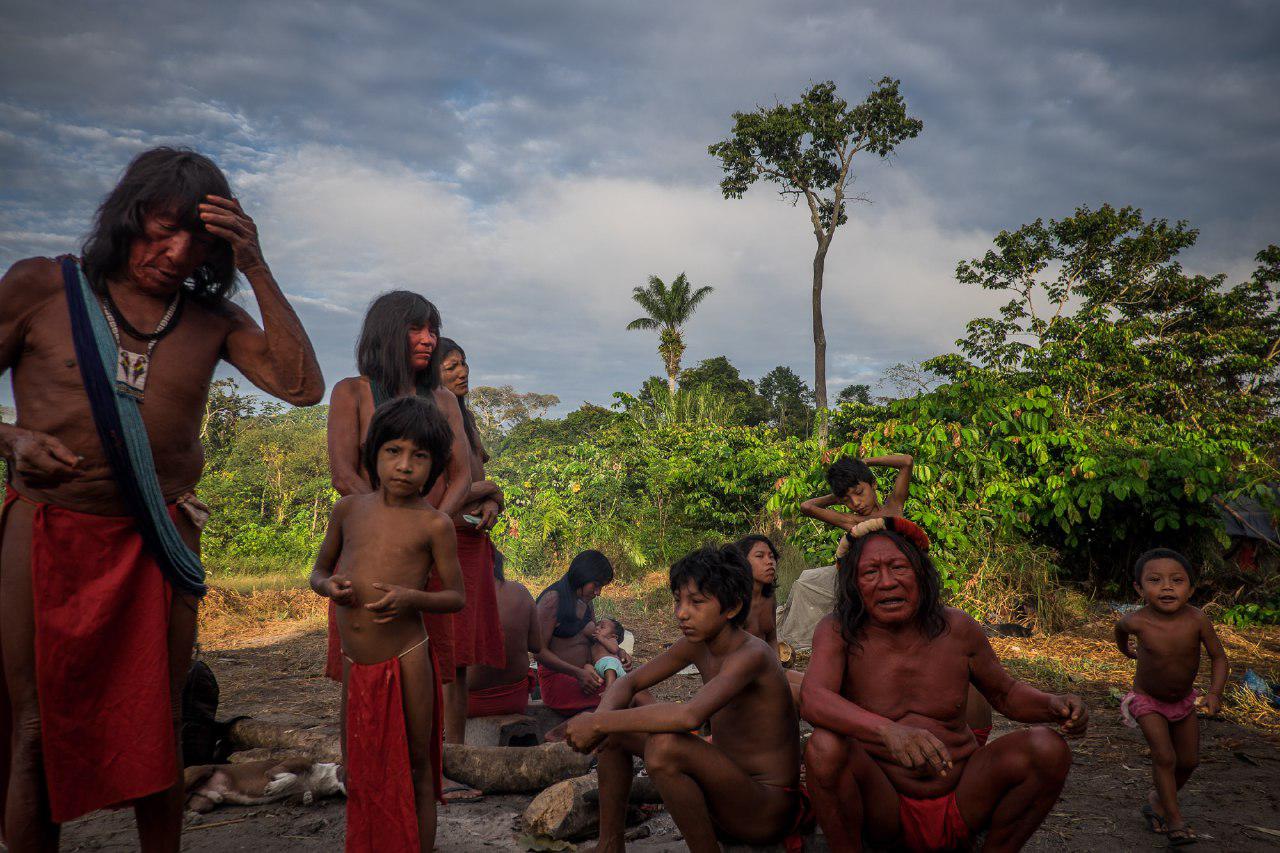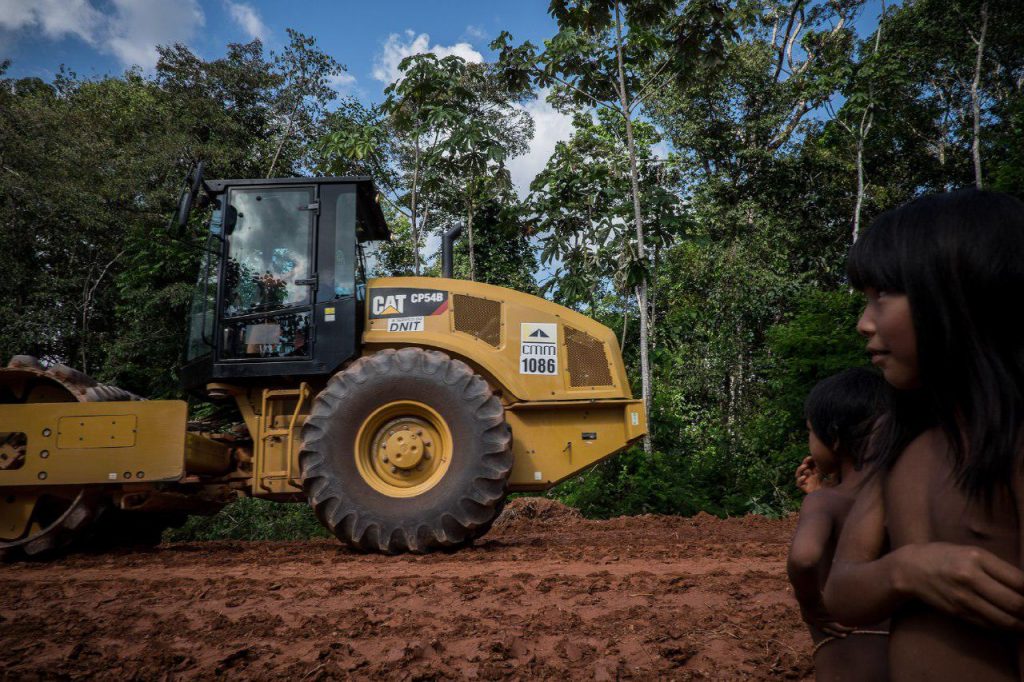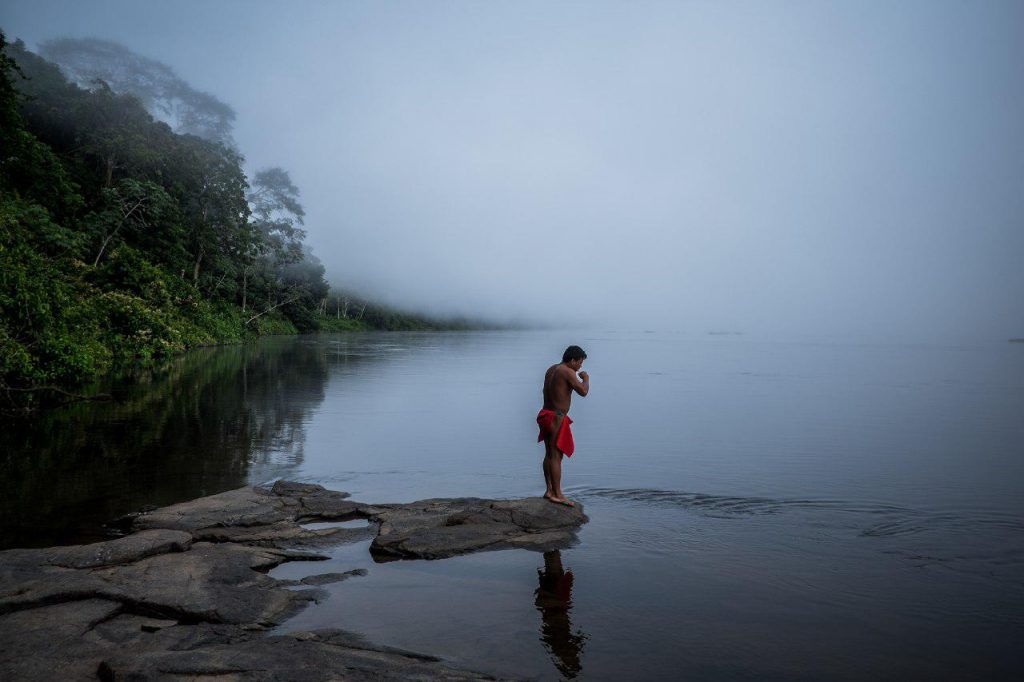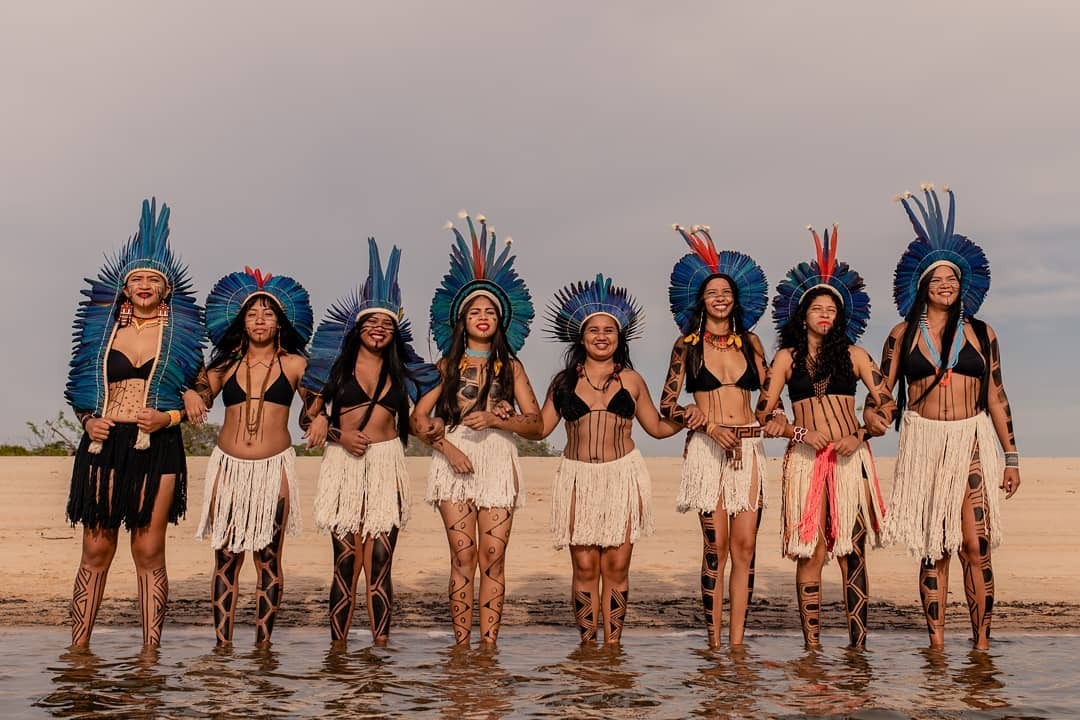
Wajãpi invasions: check out the history of almost 50 years of attacks
Por Andressa Santa Cruz e Bruno Walter Caporrino. Tradução: Nathalia Munhoz The Wajãpi are a group that speak Wajãpi language, Tupi-Guarani trunk that has been avoiding contact with non-Indians since the 17th century. Even so, they were pressed and contacted definitively: the prospectors and the mining company ICOMI passed on the first information about the […]
Por Andressa Santa Cruz e Bruno Walter Caporrino. Tradução: Nathalia Munhoz
The Wajãpi are a group that speak Wajãpi language, Tupi-Guarani trunk that has been avoiding contact with non-Indians since the 17th century. Even so, they were pressed and contacted definitively: the prospectors and the mining company ICOMI passed on the first information about the existence of these people to the National Indian Foundation (FUNAI). It was 1973 and Funai was called to “pacify” the natives and thus “release” the area for the works of Perimetral Norte, the BR-210. When they arrived, the agents found a people devastated by measles, reduced to 150 individuals.
To recover from the epidemics, the Wajãpi were moved around Funai’s welfare posts and the miners took advantage of their absence in the rest of the territory to expand the expeditions: from the beginning, the state has been working to undermine the occupation modalities of the territory and establish the Wajãpi to liberate the region for disorderly exploration. In 1976, the works of BR-210 were interrupted after cutting the Wajãpi territory in half with 30 kilometers of road that facilitated the movement of the invaders.
With Funai’s delay react to the occupations, Wajãpi leaders led small groups and were able to expel all invaders between the 1980s and 1990s, while sending demarcation proposals to the Federal Government. After 16 years dedicated to demarcating the Indigenous Land by themselves, with GIZ and Wajãpi Program support, they achieved the homologation of the Wajãpi Indigenous Land, thus becoming the first indigenous people in Brazil to self-demarcate their territory, becoming official in 1996.

Fotos feita em outubro de 2017, no contexto da Renca, projeto do Michel Temer que queria retirar 50% do território Wajãpi por Victor Moriyama
Predicting the risk of further invasions even with regulated demarcation, in 1997, under the Wajãpi Program, the IT Surveillance and Monitoring Program was created and still works today. These regular expeditions decentralized the population still living around Funai’s welfare posts and allowed the creation of new villages at strategic points, occupying the boundaries of Indigenous Land, monitoring at the same time that takes care of the reduced portion of territory that white people left them.
Thus, they have always been strengthening their social organization while ensuring their lands’ supervision. In the same year that the Wajãpi demarcated their territory, the former senator of Roraima, Romero Jucá, proposed Bill No. 1,610, on behalf of “exploitation and utilization of mineral resources in Indigenous Lands”. Years before, Jucá was Funai´s president and member of the Superior Council of Mines of the National Department of Mineral Production (DNPM).
Member of Senate ruralist bench for 24 years, Jucá is currently investigated by the Attorney General’s Office suspected of benefiting Brazil’s largest mining company, Vale S/A, known for the crimes of Mariana and Brumadinho. In 2012, Jucá’s daughter, who is a partner of Boa Vista Mineração, applied for permission to extract gold from Indigenous Lands, in the same year that PL 1.610/96, devised by her father, was again ruled by the National Congress.
Once again, the Wajãpi were cautious and organized: they provoked a meeting at Public Federal Ministry with the Brazilian Intelligence Agency (ABIN), the Mineral Production National Department (DNPM), ICMBio, Funai and Amapa´s Environment Secretariat. In this event, they launched a letter signed by the three Wajãpi associations (Apina, Awatac, and Apiwata), stating: “there is a complete consensus among all Wajãpi that they do not want mining activity on or around their land”, demanding the cancellation of all mining companies requests that surrounded its territory. At the time, other organizations endorsed the Wajãpi’s demand and joined them in a Public Civil Action for the annulment of all requirements against the Indigenous Lands of Amapá and northern Pará. The Federal Justice upheld this public civil action and DNPM was forced to void the records: the Wajãpi showed the strength of their organization and their exemplary citizenship in the zeal for the forest, which, according to the Federal Constitution in Article 225, is a property of everyone. The Higher Law also determines that it is the duty of all, citizens and public authorities, to look after a healthy and balanced environment, something that the Wajãpi have always been doing.

Foto feita em outubro de 2017, no contexto da Renca, projeto do Michel Temer que queria retirar 50% do território Wajãpi por Victor Moriyama
The Wajãpi were also the first indigenous people in Latin America to draw up their own Consultation and Consent: “we have decided to make this document because we often see that the government wants to do things for the Wajãpi, but it does not ask us what we need and want”, states the opening paragraph of the document, published in 2014 and supported by Convention 169, from International Labor Organization (ILO), law in Brazil since 2004 (Presidential Decree No. 5051), about indigenous and tribal people. But even with pioneering and anticipated state-endorsed attacks, in 2017 the then President Michel Temer (MDB) attempted to revoke the Copper and Associates National Reserve (Renca), created in 1984 to safeguard national sovereignty since Brazil´s extreme north holds strategic ores for the Brazilian war industry.
To thank the ruralist bench for acquittal in the corruption reports, Temer sent his Minister of Mines and Energy, Fernando Coelho Filho, to Canada to announce Renca’s auction to private mining companies three months before announcing the Brazilian nation and the Indians themselves that inhabit the region, such as the Wajãpi. Thanks to pressure on social networks and international mobilization, the revocation announced in the Official Gazette was debarred.
Despite repeated attacks and raids by the government and economic fronts, the ostensible and violent invasion of Wajãpi Indigenous Land, related by the natives in July 2019, was the most violent in 30 years of indigenous demarcation in Amapá.

Foto feita em outubro de 2017, no contexto da Renca, projeto do Michel Temer que queria retirar 50% do território Wajãpi por Victor Moriyama
Since the new government took over, the record of invasions in indigenous territories has increased by 150%, mainly in the Amazon.
According to the United Nations itself, which accompanies the case, President Jair Messias Bolsonaro statements stimulate this increase in invasion and violence, which can and should be taken into account in a necessary process to hold the state accountable for the genocide that such measures announce against indigenous peoples.
According to anthropologist Bruno Walter Caporrino, he also witnessed some invasions during his time as an advisor to the Wajãpi Program (2009-16), “the insistence of the responsible agencies should safeguard Wajãpi rights to deny that an invasion violates not only the specific rights of these people but the whole legal process.” He refers to the July 2019 raids, in the same week that Chief Emyra Wakãpi was found stabbed to death. Even with the history of attacks, leadership reports and the murder of an elder, the Federal Police investigation does not point to the invasion of Wajãpi Indigenous Land.
The Wajãpi Apina Villages Council, a legitimate representative and deliberative institution, has issued official notes stating that they debated long before the security forces were called and that they did it only after confirming the death of Chief Emyra Wajãpi.
In a statement, Apina also states that, despite all their commitment to lead Federal Police officers to invasion evidence, they refused to advance at the same time as, without doing any expertise, they claimed publicly, without evidence (because they gave no proof) that there was no invasion. According to Caporrino, “while the Federal Police and Funai refuse to go to the scene to collect evidence, they claim to have evidence that there was no invasion, which reveals a worrying degree of aggression against human rights, due process of law and an alignment of security forces with the president’s proposals to free indigenous lands at all costs: no matter who it hurts.”
Referência bibliográfica:
Gallois, Dominique Tilkin
Terra Indígena Wajãpi : da demarcação às experiências de
gestão territorial / Dominique Tilkin Gallois. — São Paulo : Iepé, 2011. —
(Coleção ensaios ; 1)






